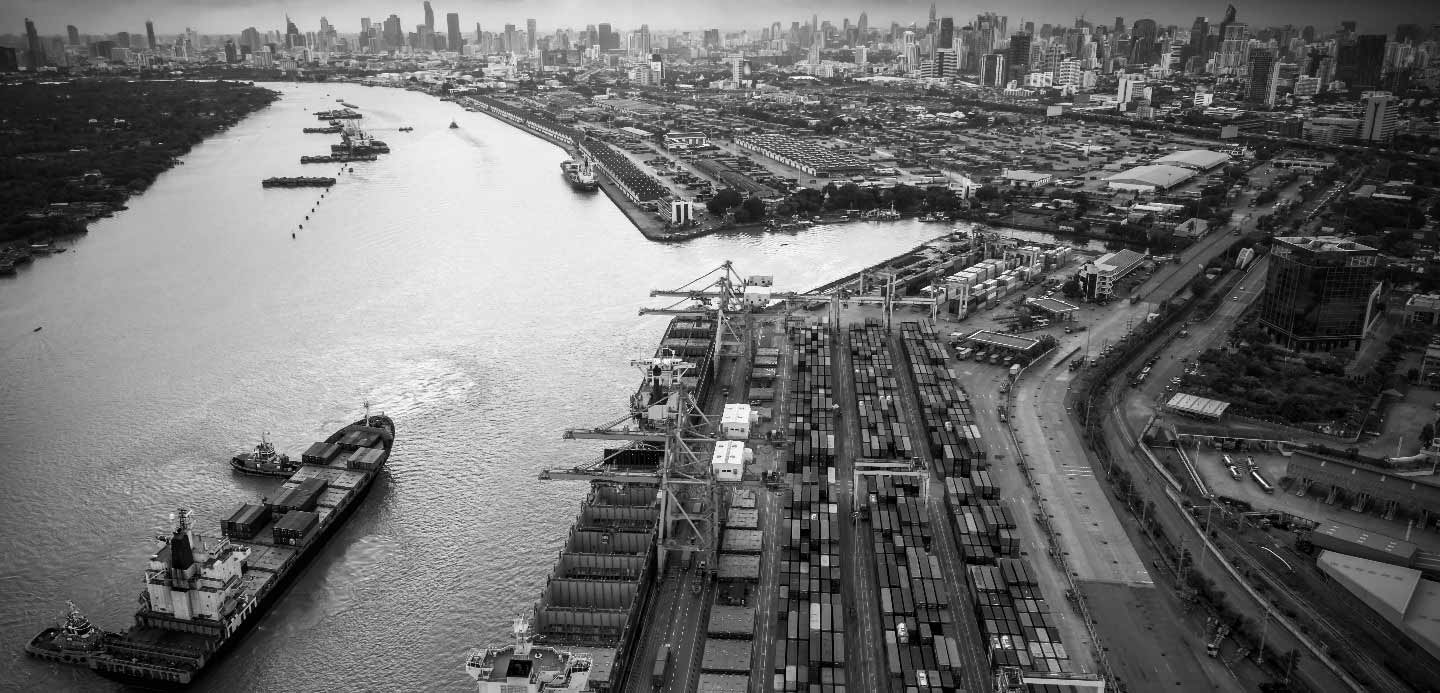- Article

- Innovation & Transformation
- Covid-19
Reshape your supply chains for a likely rebound in global trade
How can businesses adapt to changes in global supply chains? Leaders from Australia’s beverage, fashion and food industries share their experiences.
COVID-19 has not only altered the way we live and work, it has also brought big changes to the way businesses operate across borders.
Some of the main impacts on businesses have been caused by the closure of international borders, resulting in disruptions to global supply chains. But with advances in vaccine rollouts and continuing government support, some businesses are starting to enjoy a rapid revival in global trade, as flagged by the World Trade Organisation, and growth in online sales. According to Australia Post’s eCommerce Industry Report 2021, online shopping in Australia grew 57 per cent to A$50.46 billion in 2020.
In HSBC’s fourth virtual Think Bigger Innovation Series webinar, executives from some of our valued clients brought to life stories of how they have innovated and transformed their business – and how supporting their suppliers has helped them manage disruptions.
Supporting suppliers and other partners
A major disruptive event such as COVID-19 can cause a severe and sudden impact. So, moving quickly to support suppliers, customers and other stakeholders can help a business ensure continuity in its operations.
“Following the onset of COVID-19, supply chains were disrupted. Working capital cycles were stretched, and this impacted cash flows,” said Joseph Arena, HSBC Australia’s Country Head of Global Trade Solutions.
The global bank saw a double-digit percentage increase in the number of receivables, finance and supply chain transactions processed across the Asia Pacific region.
“COVID has forced many customers to digitise their trade processes and bank interactions,” Arena said.
In the face of global lockdowns, apparel retailer Cotton On assured its suppliers that it would not cancel orders in which raw materials had already been purchased. It even offered to increase the availability of its supply chain finance facility to provide greater liquidity.
“We saw a significant spike in the utilisation of that facility to help them manage their cash flows throughout that period,” Michael Hardwick, Cotton On’s Chief Financial Officer, told the panel.
“We’ve got some relationships with suppliers that have grown with us over 30 years and done a fantastic job for us,” he added. “And we want to make sure we continue to support them and build our business and their business with them as well.”
Bigger Trade - Michael Hardwick, CFO, Cotton On
Focusing on the future
Like other companies, Treasury Wine Estates (TWE) found itself in a unique position when COVID-19 hit. As one of the world’s largest wine companies, TWE did all it could to support its supply base.
Chief Executive Officer Tim Ford said life will never go back to where it was before 2020 and businesses need to work out how to take advantage of the changing world.
“I think resilience is the word of the last 12 months – that and having this focus on the future,” said Ford. “So, innovators will succeed.”
He shared that home delivery has now become a bigger part of the TWE business.
“We redeployed a fair amount of our investment to our retail partners’ platforms that have the delivery service behind it,” said Ford. “We looked at e-commerce as – how do we build the experience with our brands through our retail partners’ platforms?”
The robust relationships TWE has forged with partners and customers helped it smooth supply chain disruptions.
“I can’t recall a time when our customers and ourselves worked closely on a daily basis to make really quick scenario-based decisions to ensure that we continued to supply where we could,” added Ford.
Bigger data - Tim Ford, Treasury Wines
Engaging customers
Stephanie Lam, Chief Operating Officer at Asian food products manufacturer and retailer Ettason, surprisingly did not find too much pressure on its supply chain during the pandemic. Though, she acknowledged that delays and congestions did impact her company’s inventories.
“We had conversations with customers on a daily basis and talked about how to fulfil that sudden spike in demand and how much of it not to fulfil so that we wouldn’t be left without products some three or four months down the track,” said Lam.
Bigger trade - Stephanie Lam, COO, Ettason
Leading the way
TWE’s Ford said that another key priority for the company has been to meet its environment, social and governance (ESG) goals. ESG refers to the three key factors that investors are increasingly focused on to measure the sustainability and social impacts of an investment.
“Our ambition is unashamedly to be an admired organisation. And I think to be an admired organisation by shareholders, stakeholders, governments, communities, your own team, you’ve got to be leading the way and doing the right thing,” said Ford.
“One point that I think will become a bigger opportunity in the future is consumers are expecting more from brands and from organisations now on this front as well, particularly around environmental factors. So, brands and businesses can be seen to be doing good.”
Bigger trade - Tim Ford, CEO, Treasury Wines
Making supply chains resilient
As economies start to recover, businesses are keen to invest.
Citing HSBC’s 2020 Navigator survey, Arena said that 70 per cent of Australian businesses intended to expand into new markets, cut costs and make supply chains more resilient.
“At HSBC, we are on this journey with you,” added Arena. “So I do hope we can connect and discuss how we can support your business to achieve its ambitions, here in Australia and globally.”
Read our other Think Bigger Innovation Series articles to learn more how leading Australian businesses are innovating. And visit our Think Bigger website to see how HSBC can help your business achieve its ambitions in Australia, in Asia or globally.
Disclaimer
This communication has been prepared in Australia by HSBC Bank Australia Limited (ABN 48 006 434 162) AFSL 232595 and/or its affiliates ("HSBC") for the general information of its "wholesale" customers (as defined in the Corporations Act 2001). The details and information contained in this article do not constitute an offer or solicitation for, or advice that you should enter into, the purchase or sale of any security, commodity or other investment product or investment agreement, or any other contract, agreement or structure. Neither HSBC nor any of its affiliates are advising you in respect hereof; accordingly prior to making an investment decision, you should conduct relevant due diligence and analysis, and seek necessary independent professional advice. Please note that any information (including market data, prices, values or levels) and any terms or conditions contained herein are indicative, are provided for reference purposes only and may vary in accordance with changes in market conditions. We are not obliged to enter into any actual trade with you based on any information contained herein. No liability is accepted whatsoever for any direct, indirect or consequential loss arising from the use or dissemination of this information, either by you or any third party.
© HSBC Bank Australia Limited 2021 ALL RIGHTS RESERVED.
HSBC Bank Australia Limited, Level 36, International Towers Sydney, 100 Barangaroo Avenue, Sydney NSW 2000 Australia


